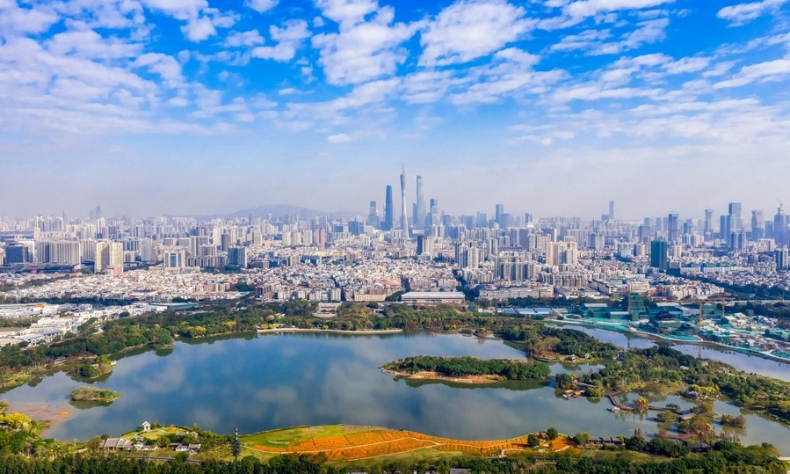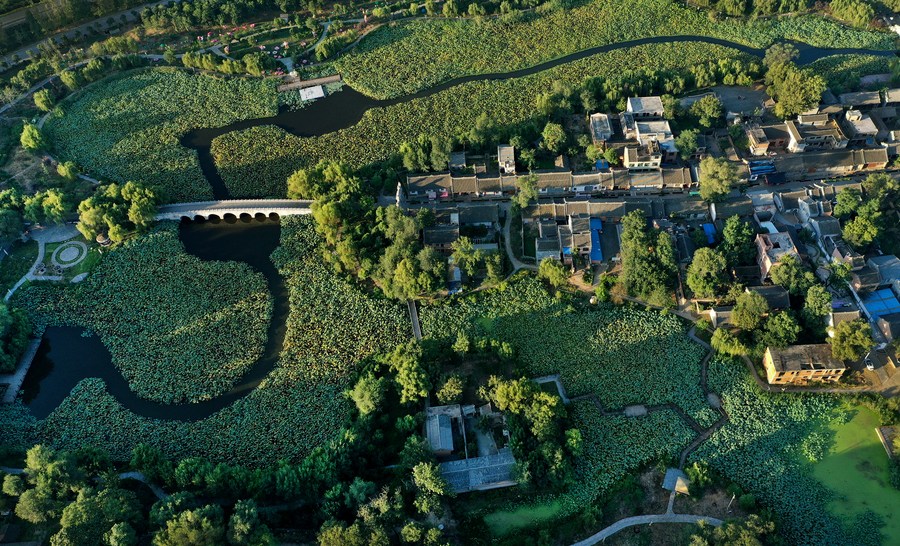China Moving Toward Ecological Civilization

China is subsequently stepping up its efforts to protect wildlife, the environment and thus to preserving the delicate balance between humanity and nature in a world marred by centuries of spiraling development.
The human race shares this planet with millions of other species and forms of life. In recognizing that, it is always important to remember that our rapid rise to industrial, urban civilization has unavoidably impacted the planet and life on it.
In the long run, however, the current trajectory risks destroying delicately balanced ecosystems which could potentially have serious consequences for humanity itself. As such, we must ultimately find a balance between development and nature which can uphold the ecology, beauty and harmony of the Earth.
The word “harmony” is an important concept in China. Chinese society and culture are built on the idea that relationships between people should be harmonious, which means avoiding conflict, emphasizing a common good and balancing unruly desires with the needs of society as a whole. However, this idea does not just apply to people, it also applies to our relationships with the world and nature. Never has this been more relevant than in the view of how China handles its rapid development, which has permanently changed the country’s landscape and created new challenges regarding nature and the environment.

At the recent 15th meeting of the Conference of the Parties to the Convention on Biological Diversity (COP15) in Kunming, southwest China’s Yunnan province, China talked about its resolve to “build a community of all life on Earth” and the concept of “ecological civilization.” This reflects the reality that unfettered market forces, championed by the West, will not solve China’s problems, and the environmental degradation it brings will eventually lead to de-development, as the ecological base is essentially the foundation of long-term development and humanity.
In short, now is the time for change. Actually, China has made great efforts in this regard to ensure the harmonious co-existence between mankind and nature. Over the past few years, the country has been working hard to expand legislation to protect biodiversity and has drawn “red lines” for ecological protection, established a national park system, undertaken major projects for biodiversity protection, as well as coordinated and advanced biodiversity management.
One example of China’s success in this area is in its reversing of the decline of its giant panda population to the point that it is no longer endangered. This effort included creating a giant panda national park in 2016 and doubling the number of births in captive programs. As National Geographic said, pandas have become “a global symbol of conservation success” – something in which China has played an integral part.
Likewise, China is also taking its efforts overseas. It recently announced a $232 million fund to promote biodiversity protection in developing countries. The effort is a part of its “community of shared future for mankind” – the premise being that we share one world, one planet and one future, and so must work together. China is subsequently stepping up its efforts to protect wildlife, the environment and thus to preserving the delicate balance between humanity and nature in a world marred by centuries of spiraling development. Now is the time to act.
Source: China.org.cn
 Facebook
Facebook
 Twitter
Twitter
 Linkedin
Linkedin
 Google +
Google +







